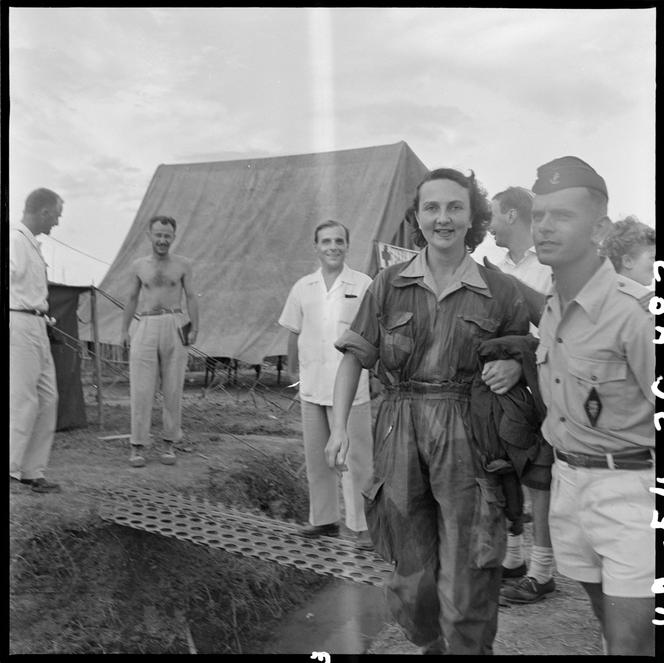


In 1954 in Dien Bien Phu, Geneviève de Galard spent around 60 days on the battlefield. All of the men who were wounded by bullets or shrapnel, the mutilated, the blind, the badly burned, all the French army soldiers trapped by the Viet Minh, all the tough guys from parachute regiments, the Foreign Legion or colonial troops, called her "Mademoiselle," "Mam'zelle ," then "Geneviève" − when they weren't screaming for their mothers in a delirium of agony. De Galard, who died on Thursday, May 30 at the age of 99, will forever be known as "the angel of Dien Bien Phu".
"Geneviève de Galard showed, in the worst hours of the Indochina War, an exemplary devotion to the courage and suffering of 15,000 French soldiers. I salute her memory," said President Emmanuel Macron on Friday, May 31.
Her courage in the midst of chaos and under the deluge of shells was highlighted as a balm to a defeat that signaled the loss of Indochina and the beginning of the end of France's colonial empire. The nurse found herself erected as a hero against her will. "I don't deserve this honor, because I only did my duty," she kept repeating. This genuine modesty only helped to embellish her image, as did her permanent self-conscious smile.
A photo of her in her parachute suit, sleeves rolled up, taken on May 24 as she got off the plane in Luang Prabang in what is now Laos, just after the town's liberation, and published on the cover of Paris Match, confirmed her popularity. Her round face, protruding cheekbones, thin lips and blue eyes became the symbol of the war, in which a strategic error on the part of the general staff had been covered up. De Galard was not fooled by the role she was being made to play. "For a long time, I kept quiet," she wrote in her belated memoirs, The Angel of Dien Bien Phu. "I didn't want to feed the publicity I had received in 1954. It had seemed to me exaggerated, and sometimes misplaced, at a time when prisoners of war were still suffering in the camps."
Geneviève de Galard Terraube was born in Paris on April 13, 1925. She came from a well-to-do family with a strong patriotic streak, claiming noble titles dating back to Joan of Arc and even the Crusades. Her father died when she was 9. Her mother brought her up with right-wing, Catholic values. Her Christian faith never left her, and became even more deeply rooted. "God will protect me!" she convinced herself at Dien Bien Phu, as she ran from trench to trench under the shells.
She lived between Paris and her family home in Labatut, in the Landes region. During the war, she took refuge in Toulouse, before returning to Paris in November 1942 after the Germans invaded the unoccupied zone. She grew up reading adventure and travel books. After passing her baccalaureate, she began studying English at the Sorbonne. Looking for a profession, a vocation, a future, she found it all in 1950 when she passed her nursing diploma. Two years later, she passed the competitive examination for the convoyeuses de l'air, the flying nurses responsible for assisting the wounded and sick evacuated by plane. Attached to the Lanessan hospital in Hanoi, she discovered Indochina in 1953. The Vietnam War of Independence, which had broken out in 1946, was raging. De Galard convoyed the wounded under fire, performing first aid in the shaking cabin, overseeing blood transfusions, sometimes realizing the men have died despite her efforts to save them. After a stay in Algeria, she returned to the region in February 1954.
You have 67.01% of this article left to read. The rest is for subscribers only.
